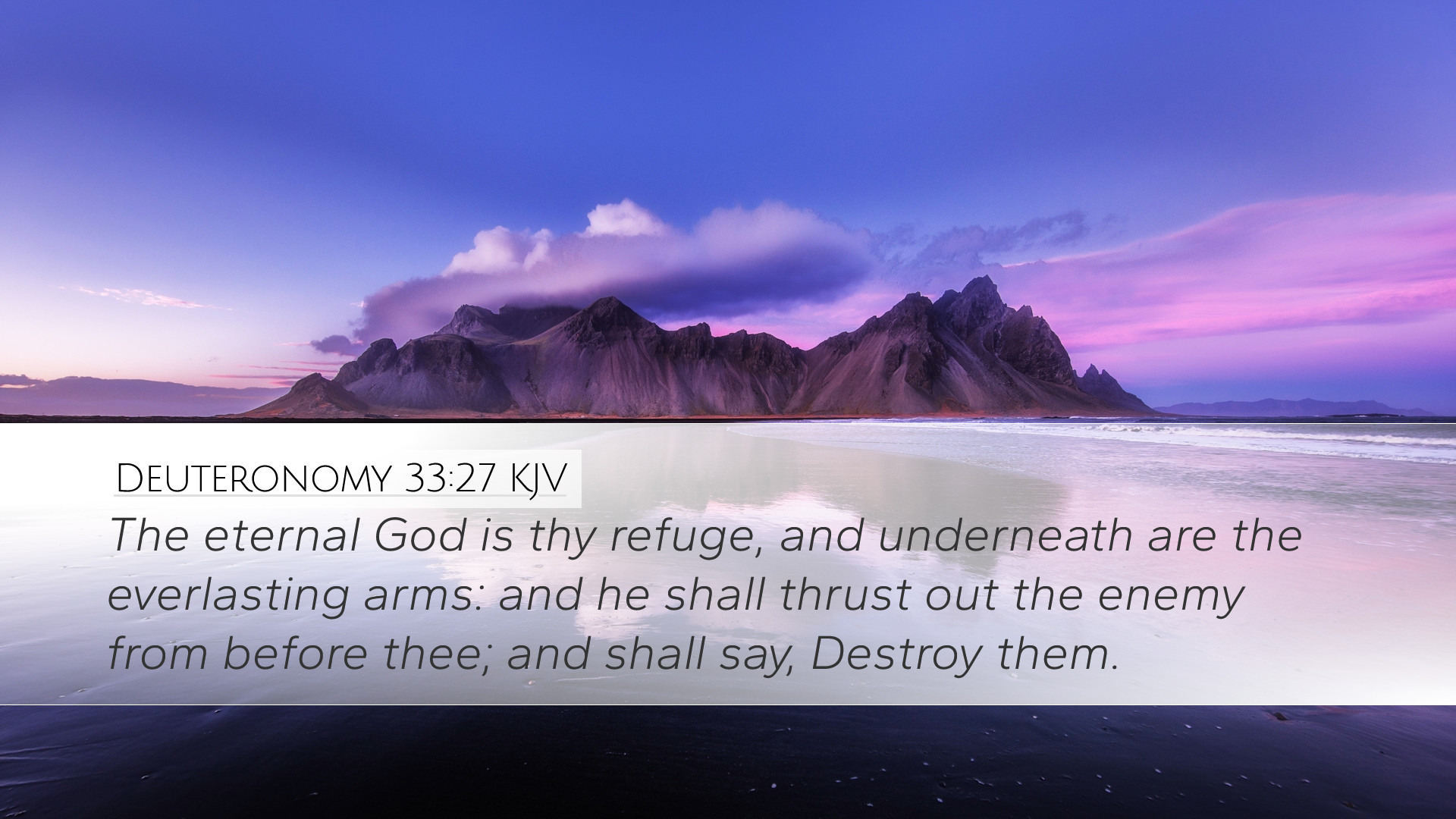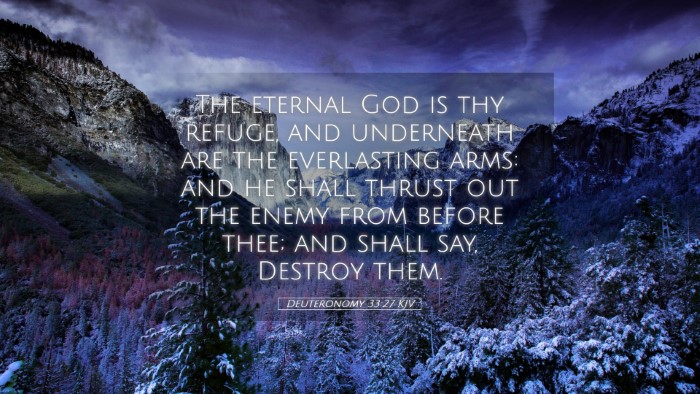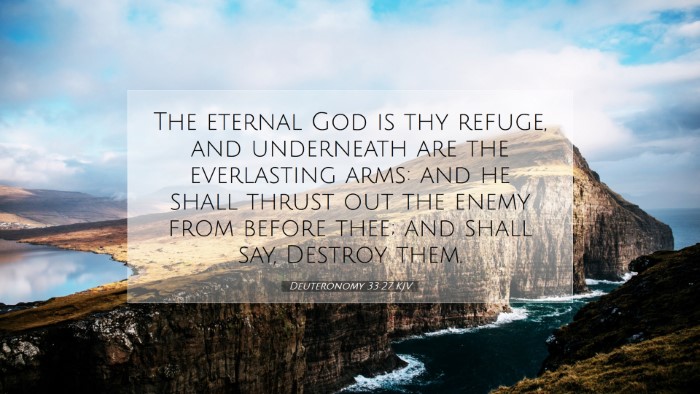Commentary on Deuteronomy 33:27
Verse: "The eternal God is thy refuge, and underneath are the everlasting arms: and he shall thrust out the enemy from before thee; and shall say, Destroy them."
Introduction
This verse, nestled within Moses' final blessing to the tribes of Israel, offers profound insights into the character of God and His promises to His people. Not only does this verse assure the faithful of God's protection and presence, but it also serves as a reminder of the covenant relationship established between the Lord and Israel. In exploring this verse, we will draw on the insights of several public domain commentaries, including those by Matthew Henry, Albert Barnes, and Adam Clarke.
The Eternal God as Refuge
Moses begins by declaring: "The eternal God is thy refuge." This profound statement highlights God's nature as eternal and unchanging. According to Matthew Henry, the term "eternal" signifies God's infinitude, encompassing His timeless existence and unwavering faithfulness. He is a sanctuary for all who seek Him, reflecting the deep need for security and shelter in the spiritual life of believers.
Albert Barnes adds that this refuge is not merely a physical shelter but a place where believers can find strength and solace amidst trials. He emphasizes that the "refuge" status of God implies both protection from danger and a source of spiritual sustenance. In essence, God’s eternal nature fosters a safe haven for His people, especially in tumultuous times.
Underneath Are the Everlasting Arms
The phrase “underneath are the everlasting arms” implies that God’s support is unfailing. Adam Clarke interprets this metaphorically, suggesting that the "everlasting arms" represent God's omnipotent power and love. He posits that just as a father holds his child, God lovingly sustains His people, lifting them up in times of need.
Matthew Henry elaborates further on the security this provides: as God is both our refuge and the source of our support, believers can confidently face the adversities of life, knowing they are cradled in divine strength. The imagery of "everlasting arms" reinforces the notion of continuity and commitment, indicating that God's strength is always accessible and will not falter.
Victory Over the Enemy
The second portion of this verse declares: "He shall thrust out the enemy from before thee." This assertion embodies the promise of divine intervention against Israel's adversaries. Albert Barnes insists that this assurance reinforces God's role as a warrior for His people, indicating that He will actively engage and remove obstacles that threaten their spiritual and physical well-being.
Matthew Henry elaborates that the "enemy" encompasses not only physical adversaries but also spiritual attacks that believers face. He interprets this as a promise that God will combat all forms of opposition — whether they arise from within or outside the community of faith.
Divine Command to Destroy
Finally, the text states, "and shall say, Destroy them." Here, God's authority is established as one who commands victory. Adam Clarke indicates that the phrase imparts a proactive stance of God; it depicts Him as not merely a passive protector but an active judge over evil. This implies that God not only provides refuge and support but also actively pursues justice on behalf of His people.
Albert Barnes notes that the destruction of enemies serves as a necessary act for the preservation of the people of God. It signals the establishment of righteousness and the elimination of threats to their covenantal existence. God’s engagement in warfare on behalf of Israel is a thematic strand throughout the Old Testament and reaffirms his covenantal promises to His people.
Theological Implications
The theological ramifications of Deuteronomy 33:27 are profound. It reveals key attributes of God, namely His eternal nature, His protective love, and His active involvement in the affairs of men. Moses' proclamation is not merely historical; it is deeply applicable today. For believers, the eternal God continues to be a refuge, with His arms always available to support and guide His children through life’s uncertainties.
Conclusion
In summary, Deuteronomy 33:27 serves as a powerful reminder of God’s enduring strength and faithfulness. It affirms that in times of danger and uncertainty, believers can wholly rely on the refuge offered by the eternal God. The insights derived from public domain commentaries highlight the multifaceted aspects of this verse, encouraging pastors, students, theologians, and Bible scholars to delve deeply into its meaning. Embracing these truths will foster a deeper trust in God's provision and protection, inviting a life of purposeful faith amidst life's challenges.


